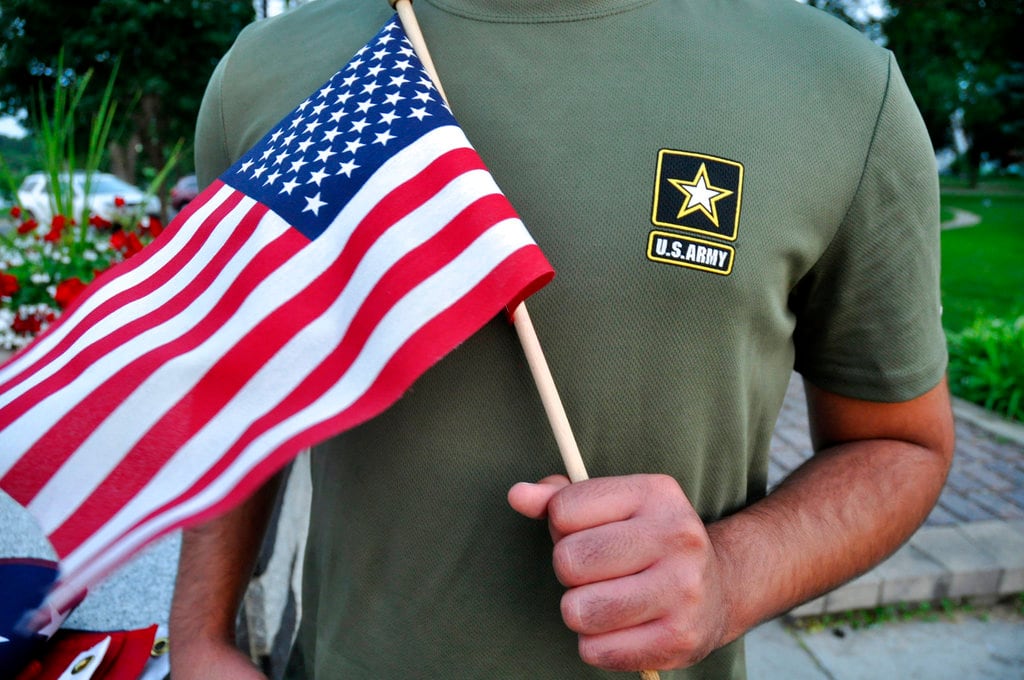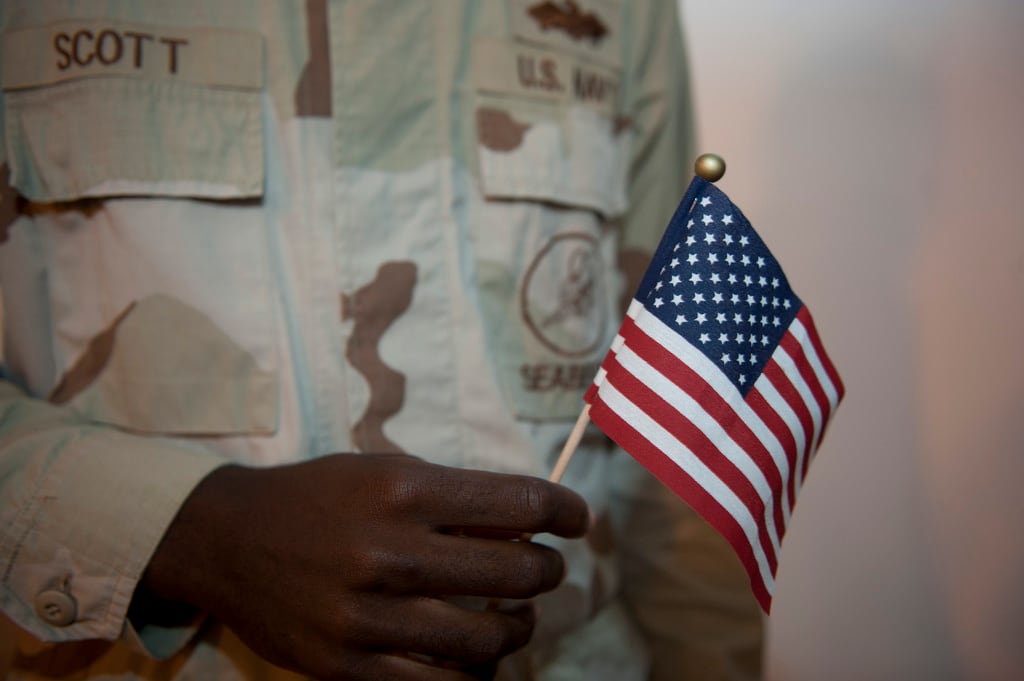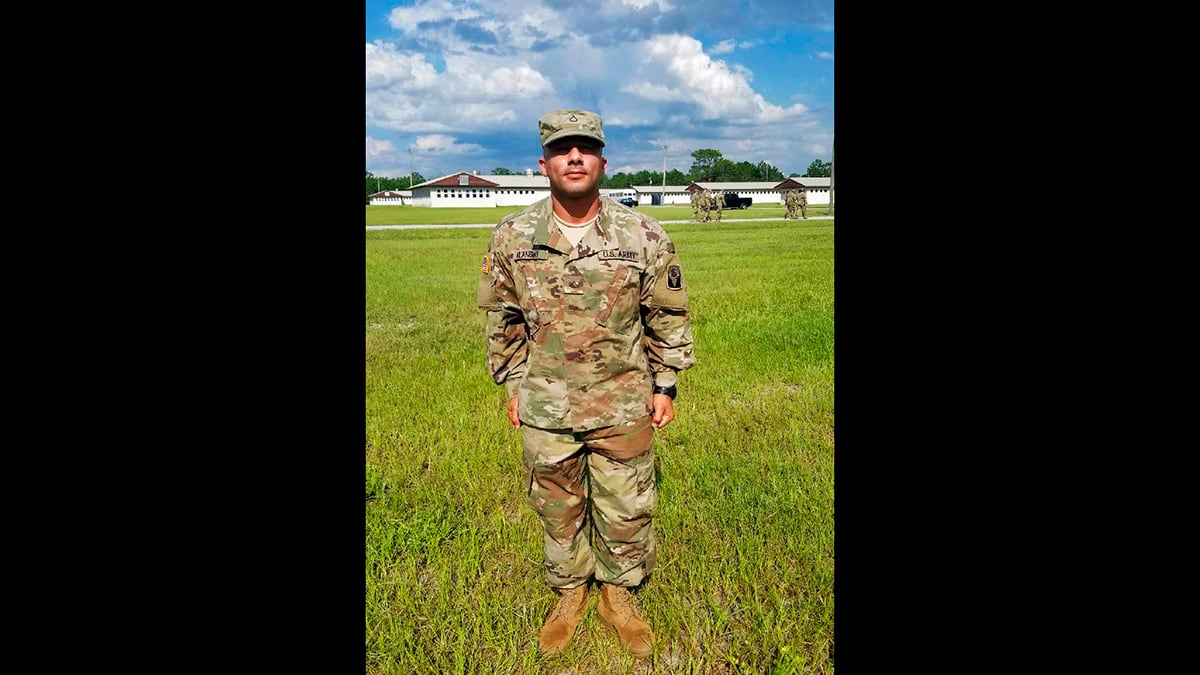ORLANDO, Fla. — Haeder Al Anbki was all set to become a U.S. citizen last year.
The former interpreter for U.S. forces in Iraq, who had been shot and stabbed during his service, was at a June 2017 naturalization ceremony in Fort Benning, Georgia, for 20 immigrant recruits when he was stopped and told he wouldn’t be participating. No explanation was given other than “there was a problem in the system,” according to a lawsuit he filed last month in the District of Columbia.
The 36-year-old Al Anbki says in the lawsuit that the U.S. Citizenship and Immigration Services was obligated to complete his citizenship application but instead was applying a different set of rules under a program known as the Controlled Application Review and Resolution Program, which opponents say targets applicants from majority-Muslim countries.
"Everybody was looking at me and they were like, 'What's going on?'" Al Anbki said Wednesday in a telephone interview from Camp Blanding in Jacksonville, where he was training with his Florida National Guard unit. "It was frustrating for me. Like, why? Of the 20 soldiers there, I'm the only one who got held."
RELATED

Al Anbki, who lives in Orlando, Florida, came to the United States in 2011 after working with U.S. troops in Iraq for nine years as an interpreter, a job that allowed him to get a special immigration visa. During his service with the troops, he was stabbed by an insurgent and shot in the leg. He lost a toe on his left foot from shrapnel. His brother, also a translator for U.S. troops, was killed.
CARRP, as the program is known, started in the final year of President George W. Bush's administration. It's "an internal policy that has neither been approved by Congress nor subjected to public notice and comment," according to Al Anbki's lawsuit.
The once-secret program is also being challenged in federal court in Seattle by the American Civil Liberties Union and the Northwest Immigrant Rights Project. Their class-action lawsuit claims the government since 2008 has blacklisted thousands of applications for asylum, legal permanent residency or citizenship as national security concerns. The case goes to trial next year.
RELATED

An agency spokeswoman said in a statement that privacy restrictions prevent her from talking about specific cases.
"USCIS adjudicates all naturalization applications fairly, efficiently, and effectively on a case-by-case basis to determine if they meet all standards required under the law," the statement said.
The statement said "some applications take longer than others to process," and that applicants are notified of a final decision. However, opponents say what really happens is the applications often are delayed indefinitely.
RELATED

Other lawsuits around the country have challenged the program, but they were dismissed because immigration authorities quickly ruled on the plaintiffs' applications once the complaints were filed, erasing the legal grounds on which they sued.
Besides his National Guard work, Al Anbki is employed as a security guard at Orlando International Airport while raising two grade-school-aged boys as a single dad. He has passed multiple background checks from the visa, Guard participation and job, he said.
“This is no way to treat somebody who bled for his country,” Al Anbki said.




